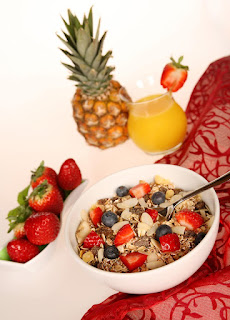Nutrigenomics: How Your DNA Shapes Your Diet & Health

Can your genes tell you what to eat? Welcome to the world of nutrigenomics, where food meets your DNA. Feeling confused by one-size-fits-all diet advice? That’s because your genes influence how you absorb nutrients , respond to food, and even manage your weight. Nutrigenomics is the science that studies how your genetic code interacts with what you eat—so you can make smarter, more personalized health choices. In this post, you’ll learn: What nutrigenomics is (in simple terms) How it can improve gut health, weight loss, and chronic disease risk Real-life examples of gene-based diets Pros and cons of genetic testing How to get started safely 🔬 What Is Nutrigenomics? Nutrigenomics is the study of how nutrition affects your genes—and how your genes affect the way your body uses food. It helps explain why: Some people thrive on a low-carb diet, while others crash Coffee helps some stay alert—but causes anxiety in others One person gains weight on dairy, another stays lean This field is ...







